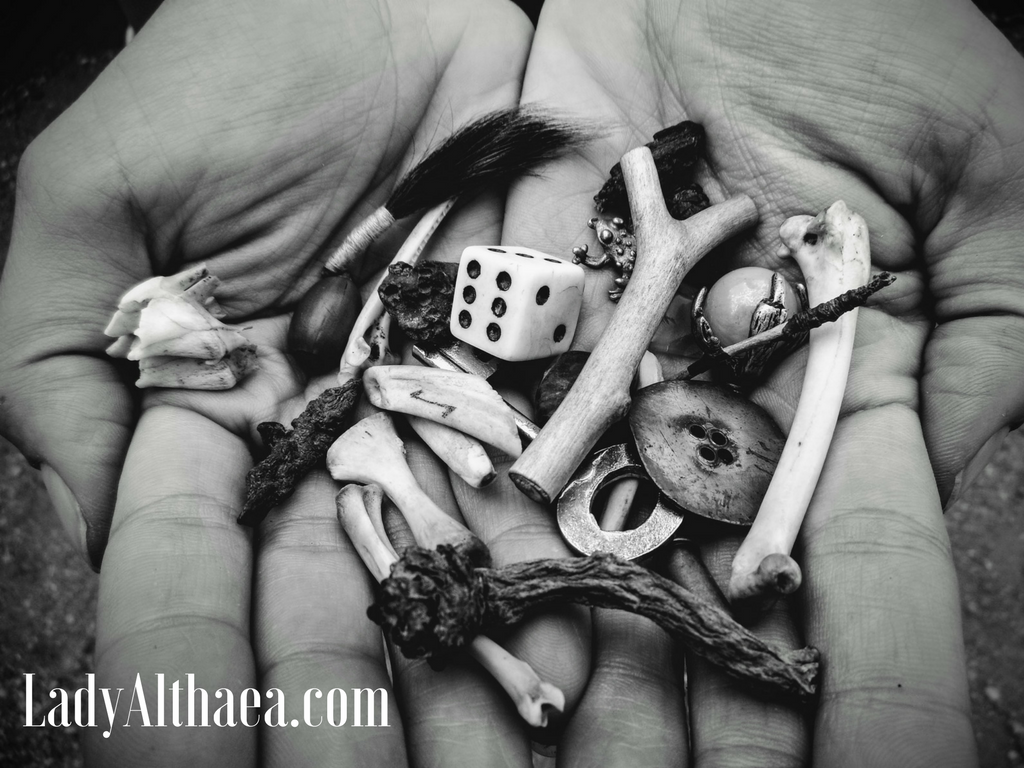|
I promise this isn’t one of those posts. You know, the kind that needlessly beats you over the head, stating how all Pagans and all magickal practitioners are bound by the Wiccan Rede (or the sometimes stated, and quite loathsome, Pagan Rede –of which there is no such thing*,) that any action that causes harm damns you to some sort of New Age hell (perhaps as being reincarnated as one who is convinced of such misinformation..?) and that your life must be filled with “love& light” and must radiate such out to all who cross your path. No, this is not one of those posts. Rather, this is a post about personal responsibility, of considering one’s actions and the consequences, for all actions, magickal and mundane, do have consequences that must be dealt with. In Hinduism, this is known as Karma: that all actions produce a residual energy that must be dealt with, in either this incarnation or another (there is no “good karma” or “bad karma” there is just karma, just an energetic consequence to be handled.**) In Western magickal thought, this
is known as the Law of Cause and Effect (like Newton said: for every action there is an equal and opposite reaction, in magick this does hold true.) This is a concept that is constant throughout all of the various Witchcraft Traditions and systems, yes, even within Wicca. So, while we’re on the subject (and just to get it out of the way…) let’s consider the often misinterpreted Wiccan Rede: "An it harm none, do what ye will.” –as first appearing in Green Egg Magazine, 3.69 (1975) attributed to Adrian Porter by Lady Gwen Thompson Psuedo-archaic jargon aside, the modern translation is, simply, “if it harms none, do what you will/wish/aim to do.” Nowhere here does it say to “harm none” –i.e. that harm is not allowed. Rather, it states, quite clearly that if what you aim to do causes no harm, then you are allowed to do that which you aim to. The Wiccan Rede is a permissive counsel: it does not tell you what you cannot do, only what you can do. As for the times when what you aim to do will cause harm, you alone must decide if that harm is justified and if you can live with the consequences (because all actions, especially magickal, have consequences.) Of course, in stating that actions that do not cause harm are allowed, there is an implication that these are then the types of actions that are preferred, but this is left to the inference of the Witch: after all, you’re the one who has to live with the results of your decisions. Of course, actions that obviously will or could cause harm, or some sort of negatively perceived consequence, are a given in the discussion of personal responsibility and morality, but what about our actions that are based on good intentions? It’s generally accepted that working magick for or on someone without their permission is a big no-no. Reasons cited for this are often not wishing to interfere with anyone’s free will or larger universal forces that may be at work in that individual’s life, such as karmic based situations, the will of the Gods, or lessons that that individual must learn and cannot learn any other way. And all of these are very good reasons for not doing so, but this caution and consideration seem to be forgotten when it comes to magick that we perceive as being in that person’s best interest. After all, if someone is stating that they are in pain or are afraid or unsure of what to do, they must be looking for help, right? Right?? Actually… no. Most times, all anyone is really looking for is a sympathetic ear, someone to take the time to hear them out and show that they care, to remind them that they’re not alone in their struggles. They’re not looking for someone to fix all their problems or offer advice, just someone to let them vent their frustrations at life and thus help them relieve that stress. And this can be hard to do. We naturally want to help, to take the pain away, to make everything okay again, but unless asked to do so it’s not our place to try. Before tossing out an off the hand “sending positive energy”or “will light a candle for you” or “blessings and prayers to the Goddess that everything will work out” take a moment and consider if such actions would truly be appreciated. Just as a Pagan may not appreciate a Christian praying for them in tough times (even if the prayers are well intentioned,) so too may another Pagan or Witch not appreciate the purposeful direction of energy at them by another Pagan or Witch. Remember, there is no good or bad when it comes to energy: it’s just neutral. So, regardless of what your intention may be, curse or bless, energy sent without permission is magick worked without permission. Remember, many Witches work very hard to guard themselves energetically, shielding themselves and their homes and strengthening those shields on a regular basis; what one may consider as a blessing another may see as unwanted energetic interference. *And, of which, there can’t be. Paganism is a term that refers to many differing religions, of which the only real commonalities are that they are: a) non-Abrahamic (i.e. not Christianity, not Judaism, and not Islam,) b) generally polytheistic (believing in and worshipping more than one deity, though this is not always the case: there are monotheist Pagans,) and c) believe in the concept of Divine Imminance (i.e. that Deity, in whatever form that individual or religion perceives It, is manifest within the physical world.) This last point does translate frequently to reverence for the Earth/Nature, but this is, again, not a constant among all Pagans. Also, those religions that we commonly refer to as Pagan are all modern religions, though sometimes based upon ancient religions. This is why such religions as Hinduism, Buddhism, and indigenous religions of uninterrupted practice are not generally referred to as Pagan. For further example of just how varied Pagan religions are compare Vanic Witchcraft with Eclectic Wicca, or Slavic Reconstructionism with Druidry (though the first pair should give you a very good idea of how diverse the Pagan community truly is…) **”Good” and “bad” are not universal concepts; they vary not just from culture to culture, but from individual to individual. They’re ideas that are based on perception, on one’s experiences: they are opinion not fact. For example, while Captain Picard may think that “Earl Grey… hot” is very good, I feel it is bad and in need of some milk and honey. Also, consider the practice of scarification used in various Rites of Passage as part of entrance to that community by a child. In Western culture, this may be seen as barbaric, a 3 year old child being held down as they’re face is ceremoniously cut with a piece of sharp metal, but to the cultures that practice such, where resources are few and community means survival, it is seen as essential. Consider also the common practice, in Western culture, of many families where children spend the majority of their time being cared for and taught by individuals that, aside from not being blood relation, are often quite strangers to that family. And elder members of the family, too, spend the ends of their lives in facilities, being cared for by those who are also naught but strangers. Baby sitters, public education, nuclear families, and government run facilities for the care of the young and old may be the norm here, but in many cultures this would be viewed as appalling, as care and teaching of children is seen as the responsibility only of those to whom the children belong, and the elderly are to be cared for also by those whom they spent their lives caring for. You take care of your own, not expecting someone else to step in when you don’t want to, and you sacrifice for those who have sacrificed for you. Comments are closed.
|
Throwing the BonesStay ConnectedThank you!You have successfully subscribed. Archives
January 2023
|



